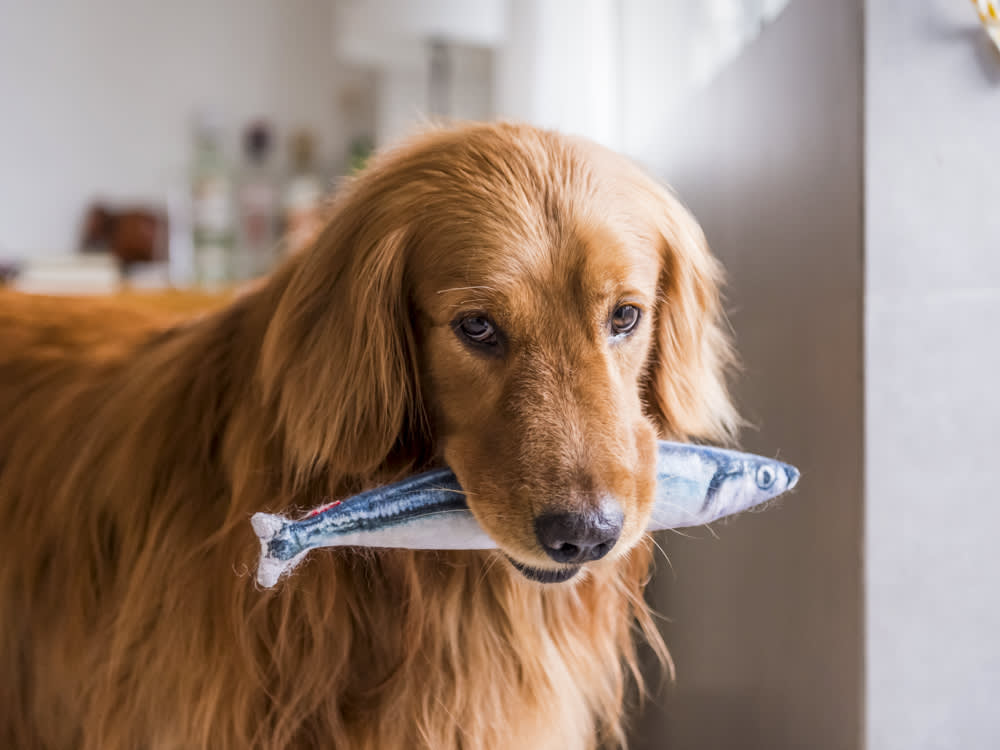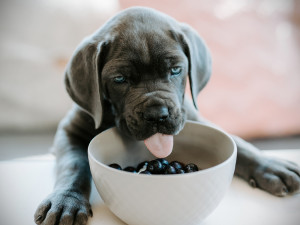Your Dog Will Love This Mackerel Meal Topper
Give your pup their daily dose of omega-3 fatty acids and other crucial nutrients with this fresh, easy-to-make recipe.

Share Article
Greyhounds are known to reach speeds up to 45 miles per hour, making them one of the fastest breeds around. But as soon as the race is over, they’re ready to take a nap. The Alaskan Husky can achieve speeds about half that of the Greyhound, but can sustain the speed for much longer — all while pulling a sled. Both breeds are remarkable, but each needs special nutrients to keep them fueled and ready to race.
An essential part of their diet? Omega-3 fatty acidsopens in a new tab, which can be sourced from either plants or animals; each source has different purposes and benefits. Flaxseeds, chia seeds, and pumpkin seeds contain the fatty acid alpha-linolenic acid (ALA), which can help fight canceropens in a new tab and enhance brain function. But what your dog’s body really runs on are eicosapentaenoic acid (EPA) and docosahexaenoic acid (DHA), fatty acids that come from meat.

Get (totally free) deals for food, treats, accessories, tech, and way more pet parenting must-haves.
opens in a new tabAlthough dogs can convert some of the ALA into EPA and DHA, it’s not enough to support the body’s entire requirement, which is why feeding your pup omega 3-rich fish like mackerel (or other meat from grass-fed animals) two to three times per week is a good idea. Not only does it keep them sustained, but it also helps reduce inflammation and furthers cognitive development.
Whenever possible, it’s best to purchase mackerel without additives like sugar and monosodium glutamate, a flavor enhancer that overstimulates neurotransmitters in the brain. Mackerel packed in water or tomato sauce is preferable over mackerel packed in oil, because the fish itself contains enough healthy fats.
A Guide to Mackerel Feeding
1 cup of canned mackerel has about 300 calories; equivalent to about ¾ cup of commercial dry food. You can replace 10% of your dog’s regular meal with the following amounts:
10-pound dog: 2 tablespoons
20-pound dog: 3 tablespoons
40-pound dog: ¼ cup
60-pound dog: ⅓ cup
80-pound dog: ½ cup
100-pound dog: ½ cup
Key Nutrients
Calories 6%
Protein 30%
Total fats 15%
Omega-3 (DHA) 225%
Omega-3 (EPA) 123%
B3 (niacin) 46%
B12 (cyanocobalamin) 26%
D3 69%
Rick Woodford
Rick Woodford, the man behind dogfooddude.com, operated Dog Stew, a company that produced nutritional, homemade dog food for dogs in the Pacific Northwest. He is the author of Chow: Simple Ways to Share the Foods You Love with the Dogs You Love and Feed Your Best Friend Better.

